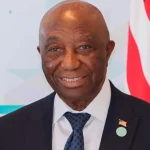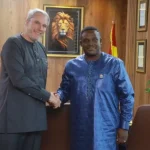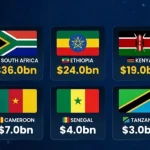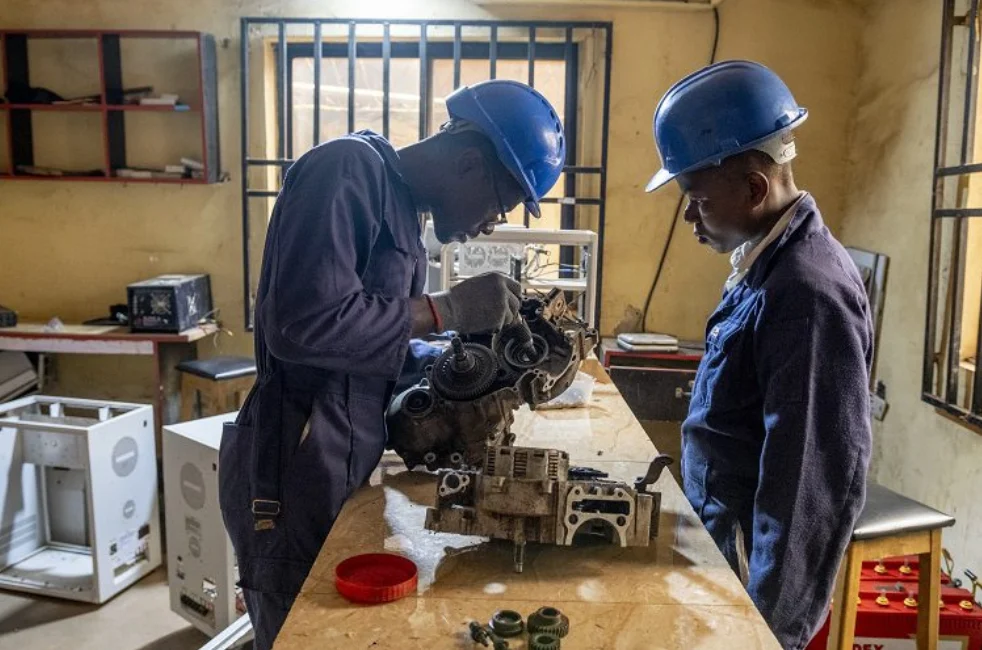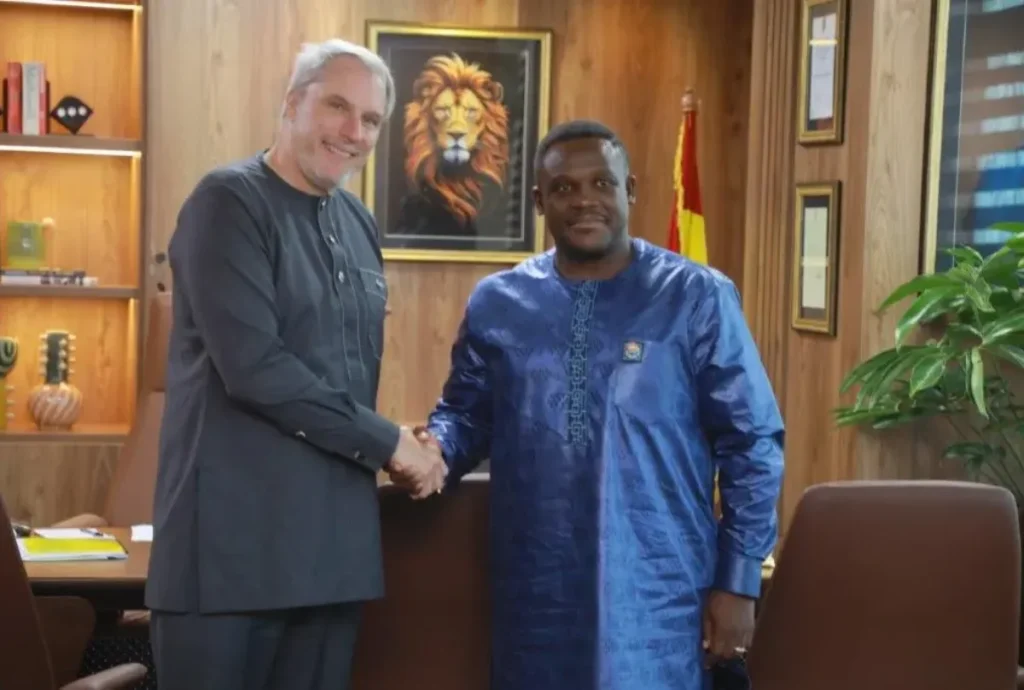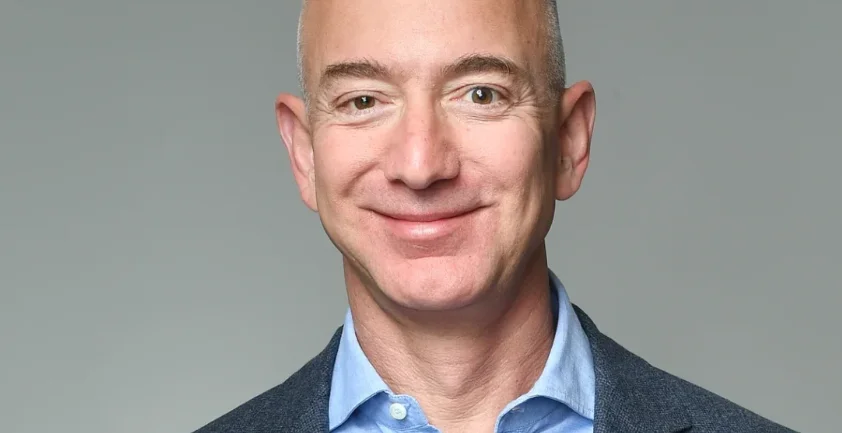The Federal government of Nigeria has removed a subsidy on petrol, shooting the price of the all-important commodity to an all-time high and plunging transporters and commuters into penury. However, an Enugu-based engineer, Chukwuemeka Eze, is bringing succour to transporters in Enugu by helping them convert their fuel-powered tricycles to electric-powered kekes.
Chukwuemeka Eze, a graduate of Electrical Engineering from the prestigious University of Nigeria, Nsukka, was a member of the team that built Nigeria’s first-ever electric vehicle, the Lion Ozumba in 2019. But rather than rest on those laurels, the young engineer went into the world with his expertise, assembling batteries and battery packs from China, and installing them into the tricycles.
He founded a green energy company called Revive Earth in 2021. The company aims to create a revolution in transportation by converting existing fuel-powered vehicles into full battery-powered ones. That business is what he currently spends most of his energy on while moulding the foundation of green energy with other visionary individuals and organisations.
In an interview with me, Chukwuemeka, also a finalist at the prestigious Africa Prize for Engineering Innovation, said what motivates him the most is the idea of waking up and going to work ‘in the future’.
“That’s where everybody should work because it never feels boring. It is the joy I feel when I think of the potentials there and how even the scariest chances of failure stand no chance in my heart,” he said.
Asked why he chose keke napeps against other forms of public transportation like bikes and minibuses, he said the tricycles are simple, lightweight, cheaper to manufacture and install, and most importantly, they penetrate the market more quickly. He, however, noted that his company wanted to focus on portable commercial vehicles and, as such, has since started experimenting with minibuses and will be launching the model in September.
Interestingly, Chukwuemeka had always wanted to be an engineer even before he had a clear idea of what engineering was all about. He liked the idea of making stuff, and he knew that people who were called engineers were renowned for making stuff. So he became enthusiastic about light and how electricity worked. He was also curious about batteries, LEDs, radios and just about anything powered by electricity.
After taking apart his father’s radio/cassette player (and getting punished for it) and reverse-engineering the same, his father decided to have him serve as an apprentice under a radio/cassette repairer after his primary school education. Chukwuemeka, who considers himself a tinkerer, learned from an early age how basic electrical connections in lighting and cooling systems work and was able to power his father’s house, which was mostly without power then.
Interestingly, Chukwuemeka doesn’t consider himself among the brightest students in Secondary School, having failed mathematics in the West African exams (WAEC) twice. But in a feat that would form a kind of philosophy in his life, he decided to study that weakness, sharpen and hone it until it became a strength. He fell in love with mathematics.
“I found myself deeply engrossed in studying the only thing that made me fail WAEC those two times: Mathematics. I studied it as if my life depended on it. Then I realized it wasn’t even as difficult, I had only been scared all along, based on popular opinion. I think the moment I began to enjoy Maths, I was certain I was going to study engineering if I ever got into the University.”
Journey into electric energy
Chukwuemeka Eze eventually made it into the university, but it took only two years for him to realise that he wasn’t cut out for the regular type of engineering. So he decided he must be vast with more unconventional means of engineering. He used the free internet in school to download and watch YouTube tutorials. Through these and critical analysis of hands-on applications of various popular engineering and scientific theories, he discovered and fell deeply in love with embedded systems design and computer programming.
He eventually started studying electric vehicles and was inspired by the works at Tesla and its sustainability mantra. These opened his eyes to the reality that electric vehicles would be the future, so he resolved to understand the technology with the fixed aim of starting his own electric vehicle servicing company five years after leaving the university. He interned in power electronics and embedded systems designing and programming to further this aim.
His big break would come just after this internship training programme. The founding Head of the Department of Mechatronic Engineering at the University of Nigeria Nsukka, Professor Ozoemena Ani, attended a conference organised by the National Automotive Design and Development Council (NADDC) in Abuja. He returned with a resolve to build an electric vehicle. Armed with this resolve, he formed a team which comprised student engineers like Chukwuemeka, and the next four months were the toughest he had ever endured.
Cleaner vehicles and cheaper alternatives
With the knowledge he gained from the hugely successful UNN project, Chukwuemeka founded Revive Earth in 2021. In two short years, the company has converted five tricycles from fuel-powered to fully electric-powered. It has also converted two bikes and is almost ready with its first minibus model. The company sources battery cells from China before assembling the battery packs in its workshop in Enugu to suit the specifications of the vehicles they are retrofitting.
“Our goal is to create a supply chain of sustainable transport systems for Africa which can utilize the technologies of the 4th Industrial Revolution, such as AI and IoT to create robust and sustainable transport system and mobility network that solve local problems.”


